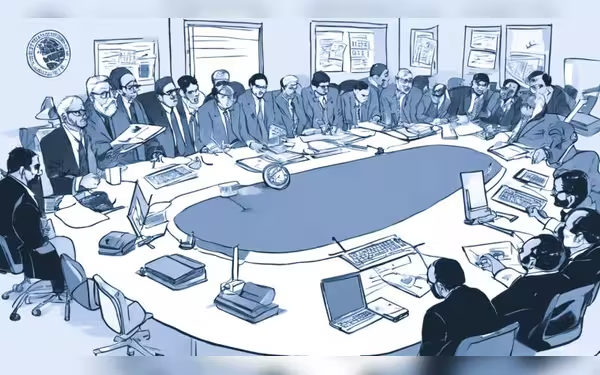Saturday, November 16, 2024 05:55 PM
Corruption Crisis in Pakistan: A Call for Reform
- Corruption and incompetence plague Pakistan's governance.
- Community engagement highlights urgent need for reforms.
- Skilled individuals are essential for effective institutions.
 Image Credits: thefridaytimes
Image Credits: thefridaytimesPakistan faces a corruption crisis, highlighting the urgent need for reforms and skilled governance to restore public trust.
In recent years, the socio-political landscape of Pakistan has been marred by a series of pressing issues, with corruption and incompetence at the forefront. Conversations among citizens often begin with light-hearted topics but quickly shift to the serious challenges that plague the nation. This organic transition reflects a collective awareness and a desire to understand the complexities of governance and accountability. As Pakistanis engage in discussions about their country, they frequently converge on the pervasive nature of corruption, illustrating a widespread frustration with the current state of affairs.
Many citizens express their concerns based on personal experiences, contributing to a broader discourse on the urgent need for reforms. This engagement fosters a sense of community and highlights the importance of civic awareness, as individuals grapple with the implications of corruption for their collective future. The reality is that the state and society are intertwined; they support and shape one another. This interdependence is crucial to understanding the challenges faced by the nation.
Prominent scholars like Anthony Giddens have emphasized that state systems and individual actions are mutually reinforcing. Incompetence within various sectors creates an environment ripe for corruption, as individuals lacking qualifications contribute to a cycle of inefficiency. This inefficiency, in turn, facilitates unethical behavior, leading to a breakdown of trust in public institutions. When citizens perceive state institutions as ineffective, they often resort to shortcuts, believing that corrupt practices are necessary to navigate a flawed system.
Moreover, the effectiveness of institutions is directly linked to the capabilities of the individuals operating within them. As Francis Fukuyama points out, establishing robust institutions is essential for curbing corruption and rebuilding public confidence. Skilled and knowledgeable individuals are crucial for effective governance and policy implementation. By prioritizing the development of institutional capacity through targeted training and recruitment, communities can address the root causes of corruption.
It is vital to enhance not only technical skills but also ethical standards and a culture of accountability within both public and private sectors. When institutions are led by individuals committed to integrity, they become dynamic entities capable of adapting to societal needs. This creates a governance framework that resists corruption and inspires public trust.
Confronting the uncomfortable truths of nepotism, favoritism, and clan-based employment practices is essential for transforming the current landscape. These practices undermine individual merit and perpetuate a cycle of incompetence. If Pakistanis genuinely aspire to improve their circumstances, they must face these harsh realities head-on.
The synergy between well-designed institutions and capable individuals is fundamental to achieving a resilient governance system that serves the interests of all citizens. By fostering a culture of accountability and prioritizing the development of skilled human resources, Pakistan can pave the way for a brighter future. It is only through collective effort and a commitment to integrity that the nation can hope to overcome the challenges it faces and build a society that thrives on merit and justice.













